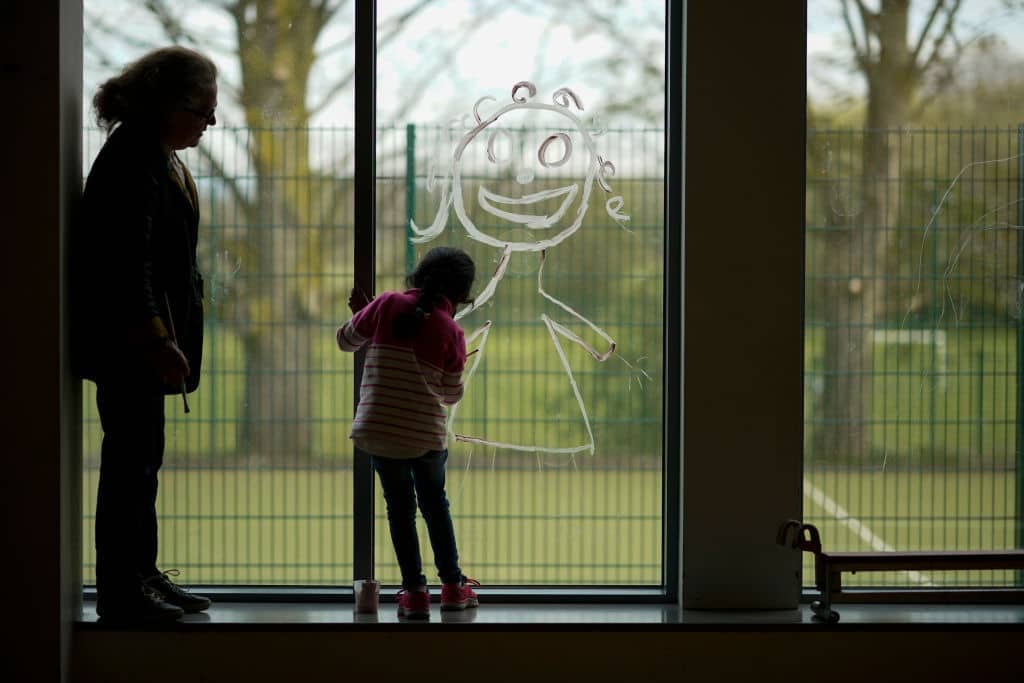I knew what ‘anxiety’ meant when I was in primary school. But it was not a word I had cause to use regularly, as I moved from my pastel coloured class-room to my David Cassidy-filled suburban bedroom. Today, however, ‘anxiety’ is our children’s word of the year, according to the Oxford University Press.
We can’t be surprised. The past two years represent a small proportion of my lifespan – but for a six year old, they are a third of their existence. Daily reports of a mysterious illness, hearing about people dying around them – some of them friends or family — and being banned from venturing outside their home: Covid milestones filled the sombre calendar of 2019/2020.
Children shared another unsettling experience, too: they witnessed their parents’ loss of authority. The government, with its ‘follow the science’ rules, repeatedly challenged parents during lockdown. Schools were closed down, even when working parents pointed to the impossible juggling act expected of them. Children were banned from contact with friends and family, even when parents pleaded extenuating circumstances. Schoolchildren were told to wear masks all through their lessons, in some cases overriding parents’ wishes.
Even those of us who believe in vaccinating their children, and in the protection offered by masks, feel uneasy
Many parents felt intimidated, and cowed, by this state-sanctioned undermining of their autonomy and authority: it was impossible to question our political leaders when we were all living in fear. Month after month of being consistently undermined began to shake parents’ confidence as carers, guides and protectors. Parents are used to teachers acting in loco parentis; but Gavin Williamson? Matt Hancock?
Mothers and fathers began to ask themselves: who’s in charge of our children? Frustrated, some parents mounted campaigns and signed petitions. A mother in Wigan – whose #SafeEdforAll group called a strike day last September – urged parents not to send their children back to school. More than 22,000 people signed a petition last year to end the use of masks in schools. Parents of autistic children tried to band together to find an alternative to the home schooling that was failing their children.
But the government remained in control of the children. Even those of us who believe in vaccinating their children, and in the protection offered by masks, feel uneasy: with the state having whittled away parental authority over the past two years, the familial hierarchy, whereby mothers and fathers take charge and the offspring obey, stands on shaky ground.
Children, meanwhile, have had their safe world turned upside down. Even our youngest children have felt the emotional strain of loss. Psychiatrists Dr Elizabeth Rapa and Dr Louise Dalton at Oxford University created a guide for parents to talk to children about the pandemic: ‘No one is too young to feel worried by changes and illness,’ they warn:
‘Even toddlers will notice if they are not seeing important people in their lives and they can’t hug the people they love.’
And even toddlers will have noticed their parents floundering, uncertain of what guidance they could give, or what protection they could offer.
Children instinctively look to their parents for direction and comfort during traumatic periods such as bereavement or a health scare. In their eyes, mother and father can shield them from any harm, while showing them how to proceed to safety. But again and again their parents had to admit that they had no authority to set rules, or boundaries, because these were in the hands of government and their scientists. Children as always picked up on their parents’ confusion. It must have filled them with anxiety, to see their mother and father reduced to impotent and marginalised figures.
What will be the long-term consequences of children viewing their parents in this way? When the natural order of things is overturned, confusion follows. I suspect children, having experienced their parents’ uncertainty, have lost the habit of holding them up as role models. I suspect, too, that discipline in schools risks becoming a huge issue, as children will have little respect left for any authority figure. At home, it will be the same. Mothers and fathers will urge, warn, disagree – but their words will fall on deaf ears. After all, the lesson of the pandemic is that no one listens to parents.
Cristina Odone is head of the family policy unit at the Centre for Social Justice






Comments